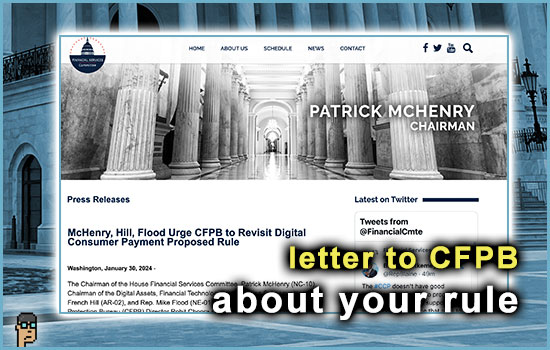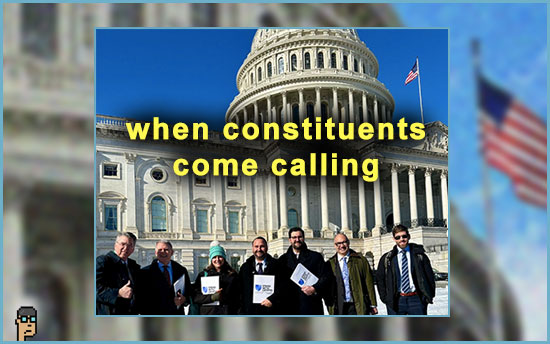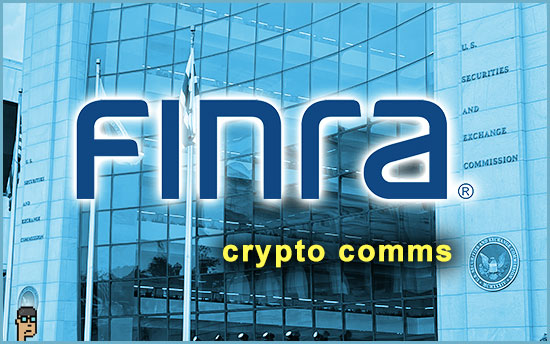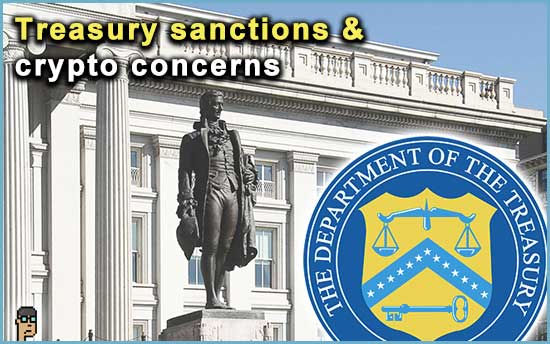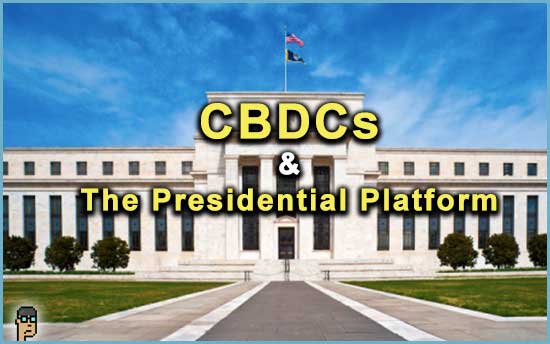letter – digital wallet rule
In a letter to the Consumer Financial Protection Bureau (CFPB) and Director Rohit Chopra (D), Republican House Financial Services (HFS) lawmakers urged the agency to reopen the comment period for the proposed rule (see it): “Defining Larger Participants of a Market for General-Use Digital Consumer Payment Applications.” Comments closed on January 8 and would impact digital wallets for crypto among other non-bank areas.
HFS Chair Patrick McHenry (R, NC), Rep. French Hill (R, AR), Chair of the Digital Assets, Financial Technology and Inclusion Subcommittee and Rep. Mike Flood (R, NE) signed on to the letter and said the rule would have “unknown effects on the digital asset ecosystem” among other reasons.
Given recent run-ins with the CFPB, it’s not surprising that HFS Republicans believe the CFPB and Biden-appointee Chopra are making a clear overreach. But, the industry has made it clear that the proposed rule is not gonna work.
Among many comments previously delivered in response to the rule, Paradigm government relations executive Alexander Grieve wrote on his company’s blog that problems with the new rule include:
-
- Overreach by the CFPB where it has no jurisdicton;
- “Broadly worded to capture crypto wallet software service providers that do not custody cryptoassets”;
- “The CFPB failed to adequately perform a fulsome cost-benefit analysis of the proposed rule.”

